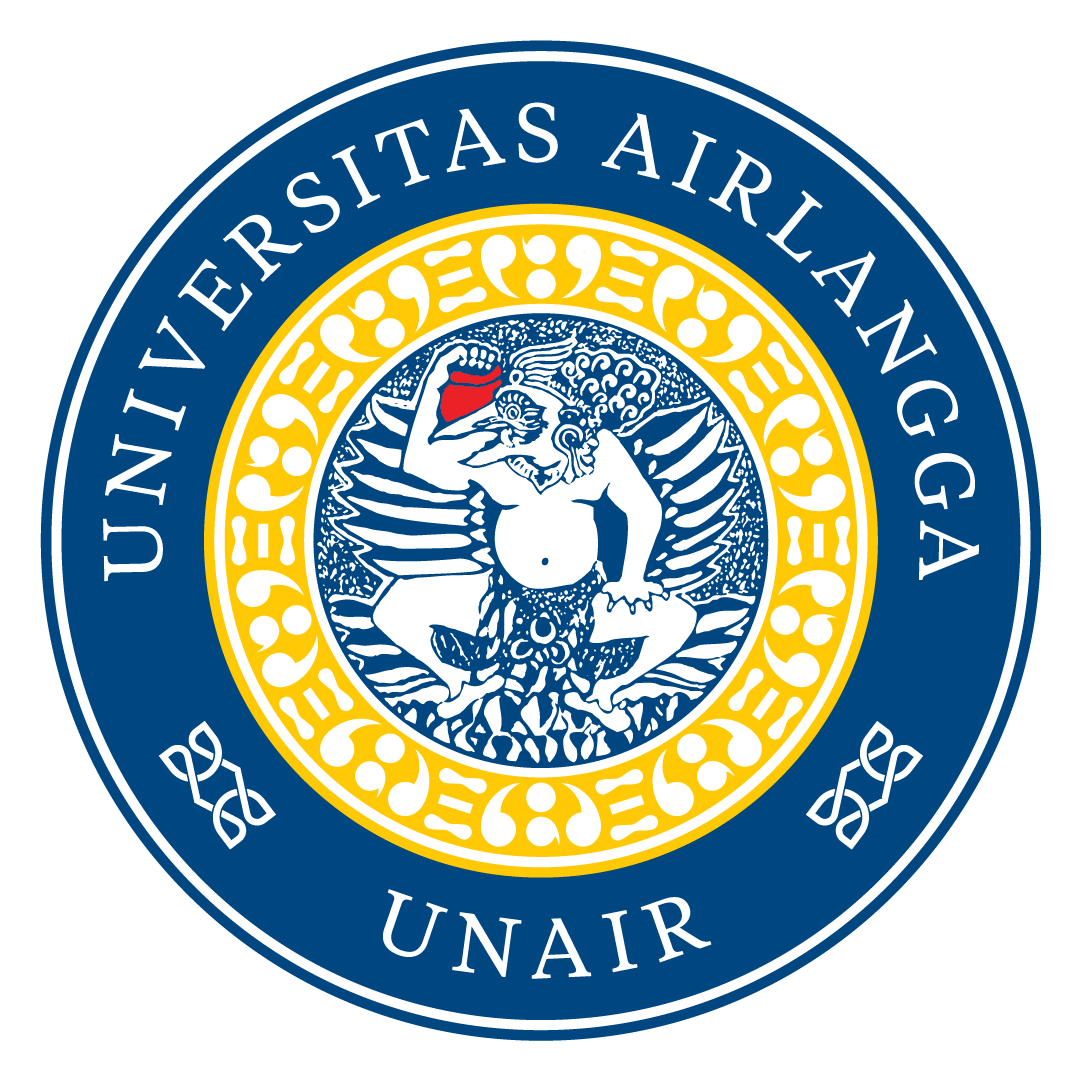Guest Lecture on Advanced Biochemistry: Lipid Production by Rhodotorula strains using Bio-wastes
On Thursday, March 20, 2025, a guest lecture was held with the material “Lipid production by Rhodotorula strains using Bio-Wastes” for the Advanced Biochemistry course. This event invited the director of ICBiotech as well as a lecturer from Osaka University, Prof. Kazuhito Fujiyama and Professor of Biochemistry, who also serves as Vice Rector III of Unair, Prof. Dr. Ni Nyoman Tri Puspaningsih, M.Si as the moderator of this guest lecture.
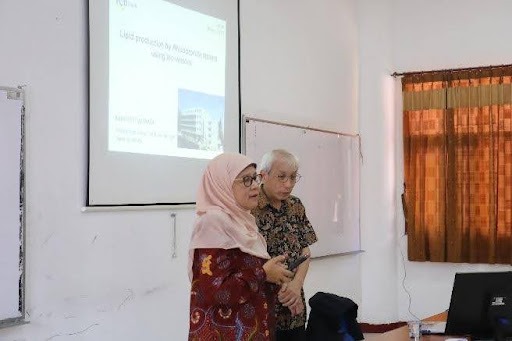
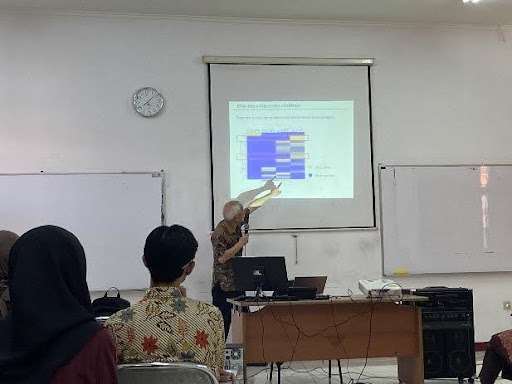
The event was attended by undergraduate and postgraduate students, research staff and several lecturers from the chemistry department. The event started with a welcome from Prof. Nyoman to Prof. Fujiyama. This guest lecture discussed the production of fat from Rhodotorula strains using biological waste. It is known that Rhodotorula belongs to the phylum Ascomycetes. The biological waste is known to contain macro and micro nutrients, so it can be a good fermentation feedstock to produce fat products.
Prof. Nyoman also shared his experience in his research utilizing biomass. He shared his experience extracting palm oil using several waste degrading enzymes, such as xylanolytic and cellulolytic enzymes. The aim was to degrade the cells in the waste from the palm oil mill (extract residual oil). While the efficiency and quality are not as good as with the first extraction, it is still feasible to develop as a biodiesel feedstock. This can be a solution to the problem of using palm oil for biodiesel, which is not recommended because it is expensive and will compete with fuel.
After Prof. Fujiyama’s presentation, there was a discussion session from each group. The first question asked about the possibility of biomass fat production can be processed into biodiesel products, where the goal can be used as a commercial product and also whether there is a difference in quality with biodiesel products from palm oil. The Director of ICBiotech explained that there was no difference, and that using biodiesel products from waste would reduce the cost by up to two times.
The next question was about how to detect if a waste still has oil content left. Then Prof. Fujiyama explained that detecting oil content in a waste can be done by transesterification reaction, where triglycerides are reacted with methanol, then produce methyl esters of fatty acids and glycerol. The methyl esters can be easily detected and determined with a gas chromatography device coupled (tandem) with mass spectrometry / Gas chromatography-mass spectrometry (GCMS). With the help of these devices, not only quantitative information on levels can be obtained, but also qualitative information such as the type of fatty acids contained in the waste. All analysis can be done in a fairly short time.
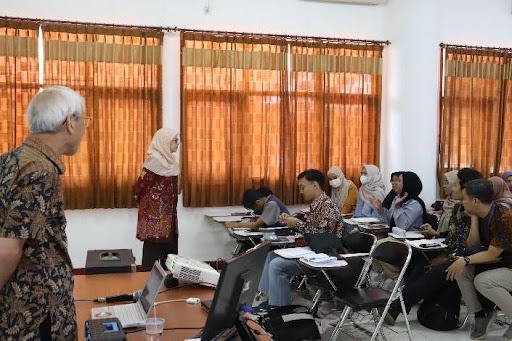
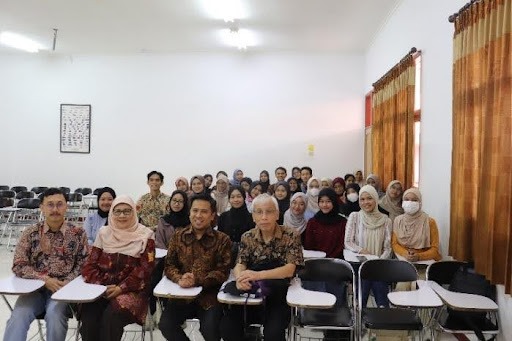
Author: Web Content Team from HIMAKI
Editor: Kautsar Ul Haq

